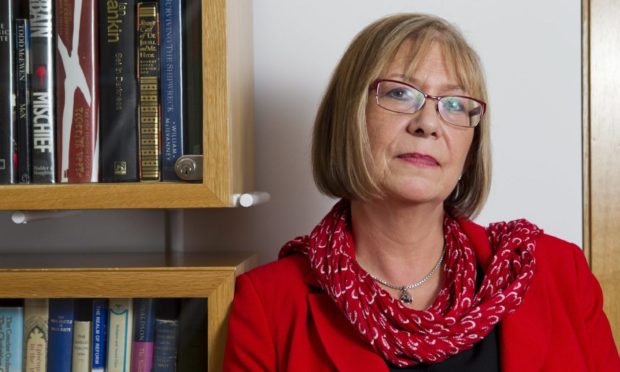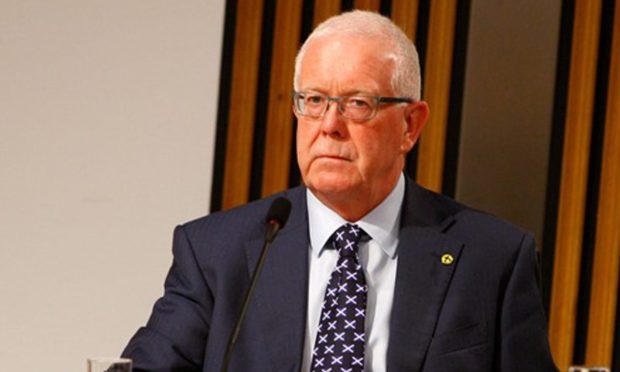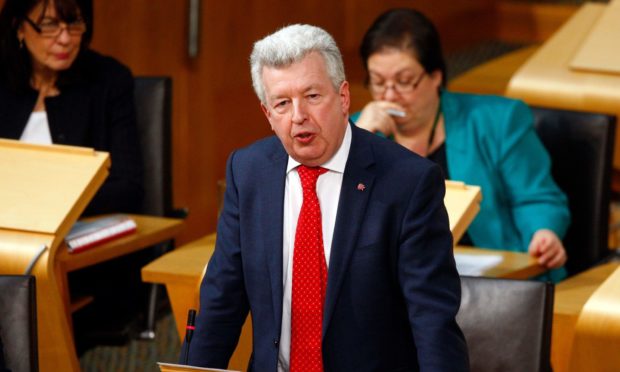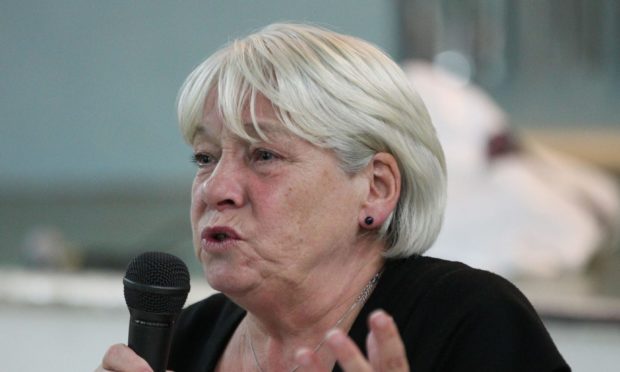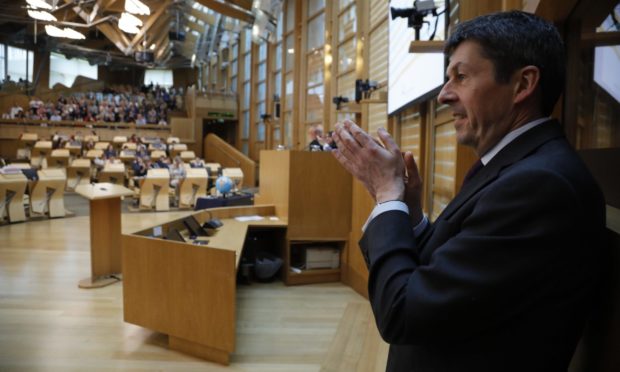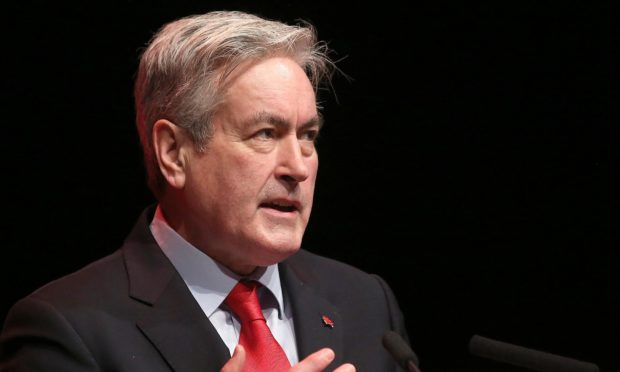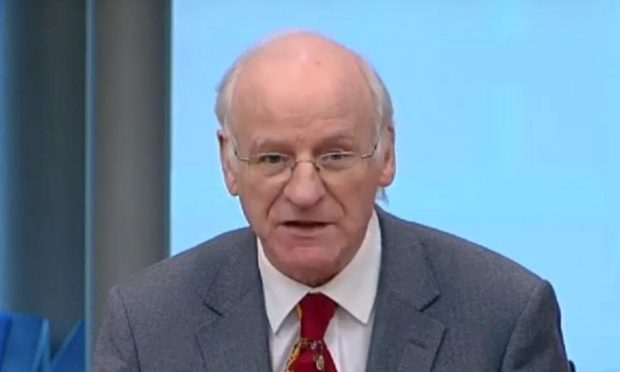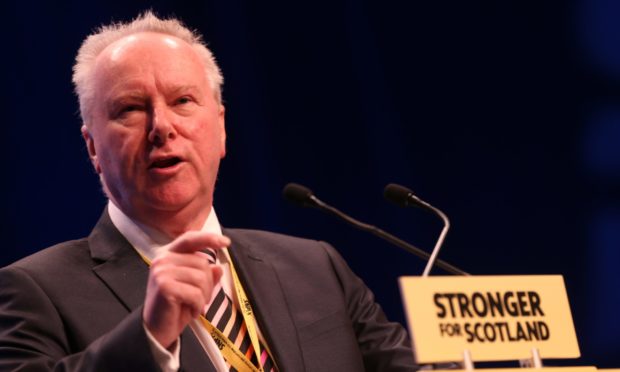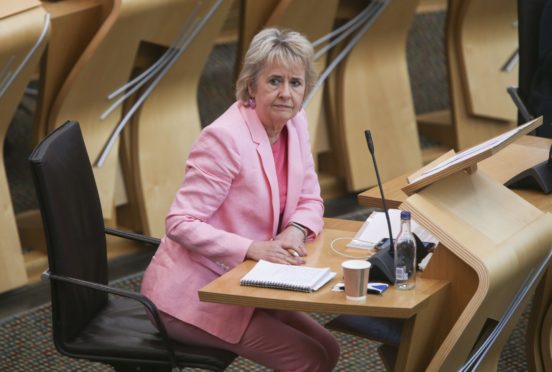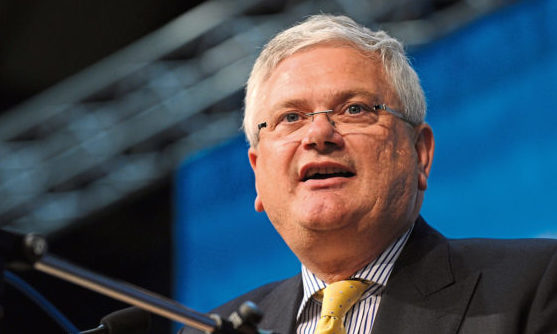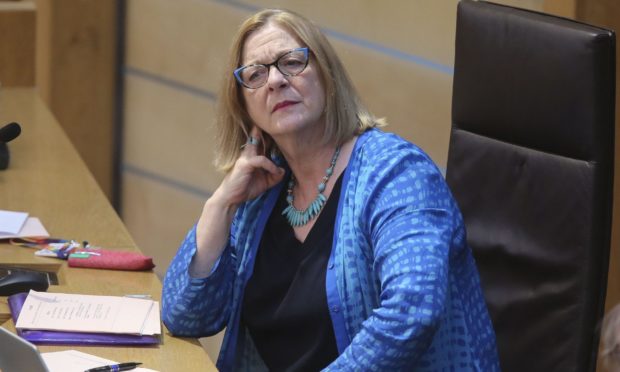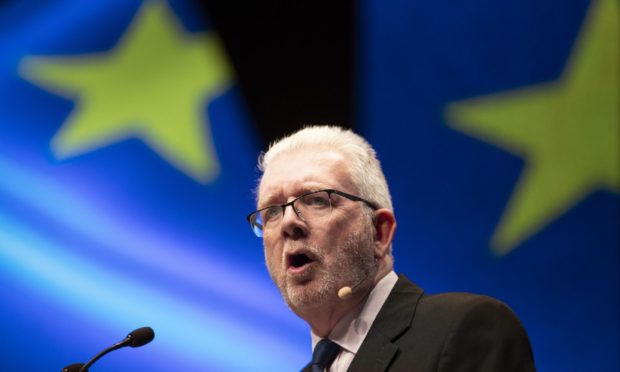When the Scottish Parliament opened in 1999 there was a sense that “whatever party you were in you were part of history”, according to veteran politician Elaine Smith.
The Scottish Labour MSP said the retirement of MSPs from the original intake is likely to make the Scottish Parliament more “adversarial” since politicians used to be “more inclined to make friendships across party divides”.
Ms Smith, who served as deputy presiding officer at Holyrood between 2011 and 2016, thinks the situation will become “worse” from the loss of original members from 1999 who she claims were “more inclined to make friendships across party divides”.
The Scottish Labour MSP for Central Scotland does not hold the view that the Scottish Parliament has fulfilled its full potential and claims there is “a lot more that it could do if the government of the day was minded to do it”.
The 57-year-old, who campaigned for the creation of a national parliament, described being elected as one of Scotland’s first-ever MSPs as a “privilege” and “a bit dream-like”.
Reminiscing about the day the parliament opened, she said there was a “carnival atmosphere” in the streets.
She added: “It seemed as if everybody in Scotland was celebrating devolution.
“On a party basis, it felt like like everybody was coming together.”
It was women’s issues which first got the Scottish Labour politician actively engaged in politics, while working for a small district council, and subsequently she got involved in the trade union movement.
It was in this role where she noticed that women were concentrated in clerical-grade jobs while men occupied the higher-grade jobs and management roles, leading her to consider “equality from a woman’s perspective” for “probably the first time”.
Biography
Name: Elaine Smith
Age: 57
Party: Scottish Labour
Member: Central Scotland
Born: Coatbridge, North Lanarkshire
Education: Studied economics and politics at Glasgow College. She then trained as a modern studies and economics teacher at St Andrew’s College and later gained a diploma in public sector management
Career: Secondary school modern studies teacher; local government officer
Political career: Served as MSP for Coatbridge and Chryston (1999-2016); MSP for Central Scotland (2016-present)
In terms of her greatest personal achievements from over two decades at Holyrood, Ms Smith said this would be to “assist people and to advocate for them”.
But she also cited the experience of passing her own piece of legislation – the Breastfeeding Scotland Bill – which became law in January 2005.
This made it an offence to prevent or stop a child who is permitted to be in a public place or licensed premises from being fed milk in that place or on those premises and to also promote breastfeeding.
The MSP had breastfed her own son and saw some of the problems women faced.
She said: “I had been researching for a conference, when I first got elected, about breastfeeding in Lanarkshire and from that I discovered Coatbridge had the lowest rates in Scotland and Scotland had among the lowest rates in Europe.
“I wanted to try to do something to help to increase the rates because it’s so good for mums, babies and society.
“I think a lot of mums, babies and health workers over the years have benefited from having the law there to protect them.”
The Scottish Labour Party, of which Ms Smith is a member, has seen its electoral support plummet dramatically since 1999, when the party were in government, to now where they trail behind the SNP and the Scottish Conservatives in the polls.
The MSP admits this has been “difficult” but she believes is a result of “debates around the constitution” dominating political discourse in Scotland.
As a result, the inability to enact Labour policies has been “disappointing” and Ms Smith regrets that the parliament had tax-varying powers for many years but these were never used, claiming this could have enabled Scotland to “look at doings things differently”.
Ms Smith said: “I don’t think we have fulfilled the full potential and that’s part of the reason I don’t know why we would be in such a rush to pursue independence, at all.
“The parliament has a lot more that it could do if the government of the day was minded to do it.”
I didn’t think, years later, that we’d be facing a no-deal Brexit and that’s certainly not what I was voting for.”
However, another debate around the constitution, that of the UK’s relationship in the EU, saw Ms Smith defy the stance of her party and vote in favour of Brexit.
She said there appeared to be “no socialist case” for leaving the EU being put forward in the Holyrood chamber and, after thinking “long and hard”, she decided she wanted to provide a voice for that argument.
The MSP said: “I did really feel strongly that the left-wing position wasn’t being given any voice in the parliament so I felt strongly I should give it that voice.
“I didn’t think, years later, that we’d face a no-deal Brexit and that’s certainly not what I was voting for.”
‘It’s much more divisive now than it was back in 1999’
The former deputy presiding officer believes politics is “much more divisive” now, compared to when she was first elected, almost 22 years ago.
She said: “In 1999 there was a bit of a sense that whatever party you were in you were part of history; you were forging a whole new relationship with the people, a democratic relationship with the people, and you were doing that together and finding out how the parliament works, learning together and MSPs were more inclined to make friendships across party divides.
“But I have watched over the years, when it does seem to have become much more adversarial, and I watched that particularly when I was the deputy presiding officer chairing the parliament; that was quite a difficult time to chair a parliament.
“I do regret that; I think it’s sad. I also think with the loss of original members from 1999 and the churn of members that it looks likely we’re going to have, it will probably make that situation worse and that’s unfortunate.”
Ms Smith said if it had not been for ill health she would probably have sought re-election next year.
“I had to stand down because of my ill health, particularly my asthma has been exacerbated during this parliament,” she adds.
“It was a big decision; it’s been a big part of my life for so many years.”
In terms of the biggest change she has seen across the Scottish political landscape, it would be be the focus on the constitution.
In the early days of the parliament, she said parliamentarians focused on domestic policies and tried to carve a different path for Scotland, pointing at decisions to abolish tuition fees and introduce a graduate tax.
She concludes: “For me, I truly feel the focus on the constitution has overshadowed tackling other issues that are important to the country and to ordinary people and families and that has been a regret for me, of the whole parliament.”
